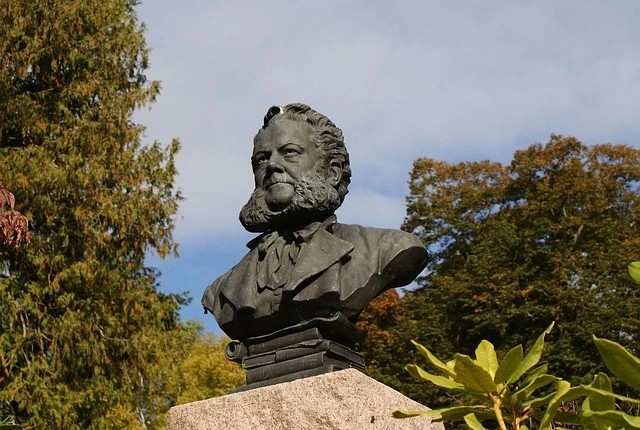The English novel, which has become an integral part of global literary heritage, has a rich and complex history that reflects England’s changing social, economic, and intellectual landscapes and, by extension, the world. The novel’s development is a testament to the adaptability of narrative forms and the enduring human desire for stories that reflect our experiences and aspirations.
Factors Contributing to the Development of English Novel
The Rise of the Middle Class
The 18th century witnessed the burgeoning of the middle class, which became increasingly affluent due to the expansion of trade and commerce. This new class sought cultural representation that resonated with their experiences and values, diverging from the aristocratic tastes that dominated previous centuries. The novel, focusing on individualism, morality, and social observation, aptly filled this niche, reflecting the middle class’s aspirations and sensibilities.
The Advent of Print Culture
The proliferation of print culture was parallel to the rise of the middle class. The advent of newspapers and magazines created a literate public eager for accessible and engaging content. Novels serialized in these publications reached a wider audience, fostering a culture of reading and discussion transcending the elite literary patronage circles.
A Shift Toward Realism
The literary zeitgeist of the 18th century gravitated towards realism, eschewing the fantastical elements of romance and the exaggerated drama of earlier works. Novels embraced this realistic approach, offering detailed explorations of character, motive, and society that mirrored the empirical spirit of the Enlightenment.
The Role of Women
Women, particularly from the upper and middle classes, found themselves with leisure time but limited access to the traditionally male-dominated spheres of activity. Novels became a primary source of intellectual engagement and entertainment for women, influencing the genre’s themes and readership demographics.
The Decline of Drama
As the novel rose, drama experienced a decline. The theatrical extravagance that characterized the Elizabethan era waned, and the public’s interest shifted towards novels’ more intimate and personal narratives. This transition marked a significant shift in popular literary consumption.
Development of English Novel
Daniel Defoe’s “Robinson Crusoe” and “Moll Flanders” are often cited as some of the earliest examples of the English novel. These works, focusing on individual experience and moral development, set the stage for the novel’s evolution. With their episodic adventures, the picaresque nature of these narratives allowed for a new depth of character development and exploration of societal norms.
English Novel in Eighteenth Century
The English novel owes much of its form and substance to the pioneering works of Samuel Richardson and Henry Fielding in the 18th century. These two authors, with their distinct styles and approaches, carved out new paths for literature and provided templates that would influence countless writers to come. Samuel Richardson is often hailed as the innovator of the epistolary novel, which uses letters and other documents to tell a story. His novels “Pamela” (1740) and “Clarissa” (1747–48) are considered groundbreaking works that expanded the dramatic possibilities of the novel by focusing on the personal and emotional lives of their characters. Richardson’s work was characterized by his intense focus on the inner thoughts and feelings of his protagonists, creating an unprecedented depth of character at the time. His novels were not just stories but explorations of morality and virtue, often reflecting the complexities of social and familial relationships.
On the other hand, Henry Fielding brought a different perspective to the novel. While Richardson might be seen as the father of the sentimental novel, Fielding is often considered the founder of the comic novel. His works, including “Joseph Andrews” (1742) and “Tom Jones” (1749), were satirical and picaresque, filled with humor, adventure, and a keen observation of human nature. Fielding’s novels were less about the individual’s inner life and more about the vibrant, often chaotic world in which they lived. His sharp wit and satirical eye turned the novel into a vehicle for social commentary and critique.
Together, Richardson and Fielding set the stage for the modern English novel. Richardson’s epistolary form gave readers a new way to engage with characters, inviting them into the intimate spaces of the characters’ minds. Fielding’s expansive and humorous narratives showed that novels could be entertaining and intellectually stimulating. Their contributions helped elevate the novel from mere entertainment to a respected literary form capable of expressing the full range of human experience.
English Novel in Nineteenth Century
English literature underwent radical change during the nineteenth century, especially the novel. A growing readership and the emergence of the novel as the primary literary genre defined this age. Throughout the century, the English novel underwent a transformation in both form and substance, mirroring and influencing the prevailing social and cultural milieus. The Bildungsroman, also known as the novel of development, was one of the main literary movements of the time, centred on the protagonist’s moral and psychological development from childhood to maturity. With its origins in German literature, this genre found a distinctive voice in English novels that frequently addressed problems of individualism, gender, and class.
During this time, serialised novels were increasingly popular, giving writers the opportunity to reach a larger readership through regular weekly or monthly releases. Additionally, this style allowed authors to react instantly to reader comments, which frequently changed the course of the story. An important feature of the English novel of the nineteenth century was social critique. Writers such as Charles Dickens and Elizabeth Gaskell employed their literary creations to scrutinise the societal concerns of their era, encompassing the unyielding industrial conditions, the distress of the labouring class, and the inflexible class hierarchies. Dickens, in particular, was renowned for his colourful characters and realistic portrayals of difficulties faced by the impoverished, which increased empathy and public understanding.
Some of the earliest pieces of feminist writing were also produced during this century. Authors like George Eliot and Brontë sisters questioned gender norms and investigated issues of female identity and independence. Strong, multifaceted female protagonists who challenged social norms were a common theme in their books. Exploring the gothic and supernatural, with writers like Bram Stoker and Mary Shelley exploring the darkest sides of human nature and the unknown, was another movement. This genre frequently served as a metaphor for society’s worries by playing on readers’ fascinations and fears.
The novelists of the nineteenth century made a vast and diverse range of contributions. Brontë sisters’ passionate and intense stories, Charles Dickens’ unforgettable characters and social critiques, George Eliot’s psychological depth and realism, Jane Austen’s astute observations of Georgian society and her witty social commentary, and Thomas Hardy’s tragic rural dramas all left an indelible mark on English literature and are still cherished and studied for their creative merit and cultural significance.
English Novel in Twentieth Century
The twentieth century was a period of remarkable transformation for the English novel, marked by a departure from Victorian sensibilities and an embrace of new forms and themes that reflected the complexities of modern life. The era witnessed an unprecedented expansion in the scope and style of the novel, with authors experimenting with narrative structures, time, and perspective, leading to the birth of modernism and its many offshoots. One of the most significant trends of the century was the emergence of the “stream of consciousness” technique. This narrative mode sought to capture the flow of characters’ thoughts and feelings in an uninterrupted current. This style was pioneered by novelists such as Virginia Woolf and James Joyce, who delved into the inner lives of their characters with unprecedented depth. Woolf’s writings, such as “Mrs. Dalloway” and “To the Lighthouse,” are classic instances of this approach, providing poetic precision while providing a window into the thoughts of her characters.
The psychological novel also gained prominence, with writers like D.H. Lawrence exploring human consciousness and the intricacies of personal relationships against the backdrop of social change. Lawrence’s ‘Sons and Lovers’ and ‘Women in Love’ stand as testaments to his ability to probe the depths of emotional experience and the human condition. The early part of the century also saw the contributions of novelists like Joseph Conrad and Henry James, who brought a new psychological depth and moral complexity to their narratives. Conrad’s ‘Heart of Darkness’ and James’s ‘The Golden Bowl’ are notable for their intricate explorations of human nature and the ambiguities of morality.
The interwar period brought a wave of regionalism and a focus on the social and economic conditions of the time. Authors like George Orwell and Aldous Huxley critiqued contemporary society and politics, with Orwell’s ‘1984’ and Huxley’s ‘Brave New World’ offering dystopian visions that remain eerily relevant today. Post-World War II literature reflected the uncertainties of the age, with the “Angry Young Men” movement and writers like Kingsley Amis and John Osborne challenging the status quo through their works.
The contributions of these novelists and many others shaped the landscape of English literature, leaving a legacy of innovation and influence that continues to inspire readers and writers alike. The twentieth-century English novel is a testament to the enduring power of storytelling and the human imagination to reflect on and reshape the world.
Conclusion
Today, the English novel continues to evolve, embracing diverse voices and perspectives. It remains a powerful medium for exploring the human condition, questioning societal norms, and pushing the boundaries of imagination. The novel’s ability to adapt and resonate with readers across generations ensures its place as a fundamental aspect of literary culture.





Leave a comment